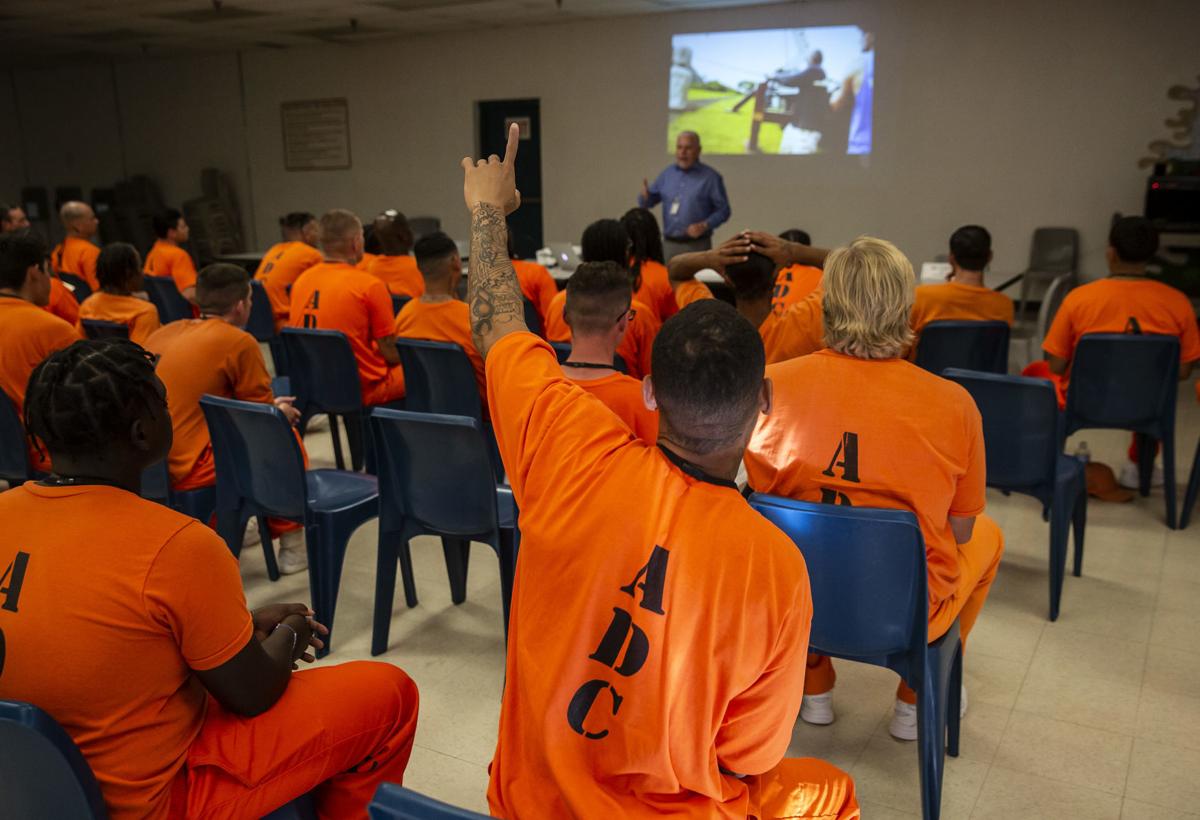PHOENIX — An organization that has been seeking prison reform for years has now decided to ask voters to do what lawmakers and the governor so far will not: revamp the so-called “truth in sentencing” laws.
The proposal by the American Friends Service Committee would keep the laws that set out minimum, presumptive and maximum sentences for various crimes.
But it would allow judges to impose shorter prison terms in cases of “nondangerous offenses” when it is “in the interest of justice.”
Another provision of the initiative would allow inmates sentenced for non-dangerous offenses to be released after serving 50% of their time. Now the minimum is 85%.
And it would end the practice by some prosecutors of “stacking” charges in a way that allows someone to be sentenced as a repeat offender even if they have no prior convictions.
Joe Watson, spokesman for AFSC, a Quaker organization, noted there appears to be some interest among lawmakers into revisiting sentencing laws as the number of people in state-run prisons exceeds 34,000. And that doesn’t count another 8,330 who are in private prisons at state expense.
That puts the state’s incarceration rate according to multiple sources at the fourth highest in the nation, exceeded by only Mississippi, Oklahoma and Louisiana.
Some legislators also are taking note of the fact that nearly 10% of the $12 billion state operating budget goes to running the Department of Corrections, with spending on incarceration up nearly 34% in the past decade.
But Watson said his organization is not confident there will be real reform.
“There’s been this bait and switch that’s happened for several years,” he said of efforts to revamp the sentencing process. “And so if they can’t get something done yet again in the next session, then we’ll leave it to voters to do what’s right.”
Backers need 237,645 valid signatures on petitions by July 2 to put the issue on the 2020 ballot.
That possibility alarms Pima County Attorney Barbara LaWall. She told Capitol Media Services she is still reviewing what is in the initiative.
But LaWall said changes like this need to be reviewed and made by legislators and not by initiative.
“There are unintended consequences for all kinds of things that need to be studied and pointed out,” she said.
LaWall did not dispute that efforts at major changes in sentencing laws have not gotten far at the Capitol.
But she said that’s no excuse to have them decided at the ballot box.
“Most of the public will have no understanding whatsoever what any of this means,” LaWall said. “They don’t understand mandatory sentencing, they don’t understand truth in sentencing.”
And she said a legislative process gives crime victims a chance to have their views heard.
The state’s current policies on incarceration date back to 1978 when lawmakers voted to impose mandatory prison terms for certain crimes.
And in 1993 they approved the “truth in sentencing” law, which says criminals must serve at least 85% of their term before being eligible for release.
Watson said the changes being sought are “not all that revolutionary.” He said judges used to have more discretion to determine what is an appropriate sentence for a specific individual.
“Now that all comes from prosecutors,” Watson said.
He acknowledged that the reason that truth in sentencing — and the 85% requirement — was enacted was because people were not serving anywhere near the number of years in prison to which they had been sentenced.
“It doesn’t mean that we didn’t go too far,” he said.
Watson said that mass incarceration continues even though figures from the FBI show violent crime in Arizona is dropping — down 4.5% between 2017 and 2018 — and is below the national rate.
“It’s the tough-on-crime mentality that has sent people who suffer from drug addiction, substance abuse issues (to prison) believing that those people were a danger to the community,” Watson said, whether they’re charged with a drug offense or some other offense to get the finances to purchase their drugs.
“What this initiative would do is give folks that opportunity to earn more time off of that sentence,” Watson said, which provides incentives for inmates to participate in programs while behind bars.
“Instead of going in and everybody being told that you’re going to be getting out at 85%, regardless of what you do to rehabilitate yourself, now you’re going to have these opportunities to go through substance abuse treatment, to go through programming, to pursue your GED, to exhibit good behavior while incarcerated.”
Watson has some personal experience.
The former writer for Phoenix New Times served a decade in state prison after being convicted of a string of robberies linked to his gambling addiction. He was released from custody in June 2017 after serving 85% of his term and finished his probation earlier this year.
There is some precedent for the change the initiative is seeking.
Last year lawmakers approved a measure permitting inmates who have been convicted solely of drug offenses to seek release after serving only 70% of their sentences.





